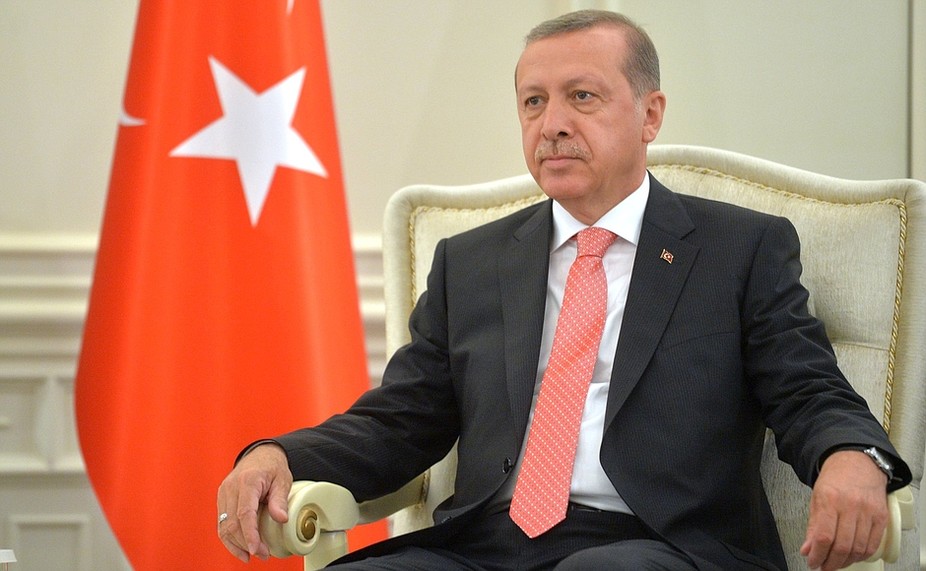The deadly attack on Istanbul’s Ataturk airport came at a really difficult time for Turkey which has been hit by similar attacks with increasing regularity over the past year. There have now been more than a dozen similar attacks in the country since the summer of 2015 and the overall death toll has climbed to nearly 350.
Turkey’s wide array of enemies makes it a regular target. Since the end of the peace talks between the Turkish government and the representatives of its citizens of Kurdish origin, various groups – the PKK and its splinter group the TAK as well as the far-left DHKP-C – have been behind a number of deadly suicide attacks in various part of the country. Then there is Islamic State (IS), which has organised carefully orchestrated attacks at key targets across the country.
Initially, IS targets such as the pro-Kurdish People’s Democracy Party’s election rally in June 2015, the Kurdish cultural centre in Suruc in south-eastern Turkey in July 2015, and a pro-Kurdish peace rally in Ankara in October 2015 which resulted in 103 casualties – the highest in the history of modern Turkey – appeared to have been chosen to increase the tensions between the country’s various communities.
But now the focus of their attacks has shifted to foreigners and other soft targets, including the suicide bomber attack aimed at tourists at the Blue Mosque in January 2016 and again in Taksim Square in March 2016 – both in Istanbul. The firefight and explosions at Istanbul airport could therefore be seen as a natural continuation of this.
Timing is everything
But why now? There are two explanations that have already been put forward. The first is voiced by the government and pro-government media and points to an important foreign policy move that took place on June 29. Turkey took important steps to restore relations with Israel, which had been frozen since the killing by Israeli armed forces of Turkish activists on board a ship attempting to breach the blockade of Gaza in 2010.
Coincidentally, Turkish president, Recep Tayyip Erdoğan, appeared to be on the verge of normalising relations with Russia on the same day, adopting a clear U-turn from the tough line he followed since the downing of a Russian jet that entered Turkish airspace back in November last year.
The breakdown of relationships with Israel and Russia were not exceptional – Turkey has been isolated internationally for some time. There was a cooling of relations with both the US and the EU following from disagreements over Syria and the exchange of its refugees, and substantial deterioration in relations with many in the region including Israel, Egypt, Iran, Iraq, Syria and Russia.
So restoring relations with both Israel and Russia simultaneously is big news. Besides, such efforts are likely to yield considerable economic benefits. For example, the Russian travel ban for holiday makers heading for Turkey greatly contributed to Turkey’s recording the lowest number of tourist visits in 22 years.
So it has been argued that the timing of the attack on the day of resetting such important international relationships cannot be accidental. But an attack of this kind is known to take a long time to plan and execute and it’s unlikely that this would have happened in the course of a few days. So for this theory to hold water, it suggests that IS has a substantial capacity in Turkey to plan and strike with such pace – which would be an alarming proposition for the security in Turkey.
A second explanation for why the attack took place yesterday was related to June 29 being the second anniversary of the declaration of an Islamic Caliphate by IS leader Abu Bakr al-Baghdadi. When combined with the fact that IS has just lost control of Fallujah to Iraqi security forces, a high-profile attack such as the one at Istanbul airport could be seen to carry substantial symbolic significance. Turkey now forms the part of the coalition against IS that has been inflicting serious damage on its strongholds in Syria. It’s an additional reason, if one was needed, why the country continues to a key IS target.
Power play
So what is next for Turkey? Whatever the reason for the timing of the attack, it is clear that the security situation is likely to get worse in the near future rather than better. Evidently, IS has the network and the infrastructure in Turkey to strike wherever it chooses – while Kurdish separatists groups also intensify their violent campaigns.
What does this mean for the political landscape? Turkey’s democracy has been crumbling over the past few years, with secular loss of press freedoms, individual liberties, freedom of speech and the loss of trust in the independence of the judiciary. There has been a major shift in the concentration of power towards the president – even though, according to the constitution, the country is a parliamentary democracy.
It is interesting that the efforts towards new relations with both Israel and Russia are seen as having been initiated by the president rather than the government. Most observers now see the current situation as a de facto presidential regime. The government proposes to make this change de jure, by enacting the regime change into the constitution. The security situation may play a crucial role in this effort – certainly the government is arguing that it is precisely because of the scale of the challenges facing Turkey - in which security issues play a major part - that the regime change is essential.
Whether Turkey will move in this direction remains to be seen. But it’s clear that, without tackling the major issues facing Turkey’s democracy mentioned above, a shift to a presidential system is unlikely to be the panacea that Erdoğan likes to think it is.
 Gulcin Ozkan does not work for, consult, own shares in or receive funding from any company or organization that would benefit from this article, and has disclosed no relevant affiliations beyond the academic appointment above.
Gulcin Ozkan does not work for, consult, own shares in or receive funding from any company or organization that would benefit from this article, and has disclosed no relevant affiliations beyond the academic appointment above.
Gulcin Ozkan, Professor of Economics, University of York
This article was originally published on The Conversation. Read the original article.




 Minnesota Judge Rejects Bid to Halt Trump Immigration Enforcement in Minneapolis
Minnesota Judge Rejects Bid to Halt Trump Immigration Enforcement in Minneapolis  Kevin Warsh’s Fed Nomination Raises Questions Over Corporate Ties and U.S.–South Korea Trade Tensions
Kevin Warsh’s Fed Nomination Raises Questions Over Corporate Ties and U.S.–South Korea Trade Tensions  Zelenskiy Awaits U.S. Details as Ukraine Prepares for Possible Peace Talks Next Week
Zelenskiy Awaits U.S. Details as Ukraine Prepares for Possible Peace Talks Next Week  U.S. Approves Over $6.5 Billion in Military Sales to Israel Across Three Defense Contracts
U.S. Approves Over $6.5 Billion in Military Sales to Israel Across Three Defense Contracts  Panama Supreme Court Voids CK Hutchison Port Concessions, Raising Geopolitical and Trade Concerns
Panama Supreme Court Voids CK Hutchison Port Concessions, Raising Geopolitical and Trade Concerns  U.S. Eases Venezuela Oil Sanctions to Boost American Investment After Maduro Ouster
U.S. Eases Venezuela Oil Sanctions to Boost American Investment After Maduro Ouster  U.S. Government Enters Brief Shutdown as Congress Delays Funding Deal
U.S. Government Enters Brief Shutdown as Congress Delays Funding Deal  Christian Menefee Wins Texas Special Election, Narrowing GOP House Majority
Christian Menefee Wins Texas Special Election, Narrowing GOP House Majority  Venezuela Proposes Amnesty Law and Plans to Transform Helicoide Prison
Venezuela Proposes Amnesty Law and Plans to Transform Helicoide Prison 
































